Poppy seeds or mák, as Czechs call them. Delicious tiny little seeds of pure blue gold. Czechs grow up in an environment where poppy seeds are commonly eaten. They are sprinkled over buns and kolache are stuffed with poppy seed filling.

There are poppy seed cakes, strudels, rolls, and Bundt cakes. Breads and rolls are sprinkled with poppy seeds. Czechs grow up eating poppy seeds, and it’s a part of their culinary heritage.
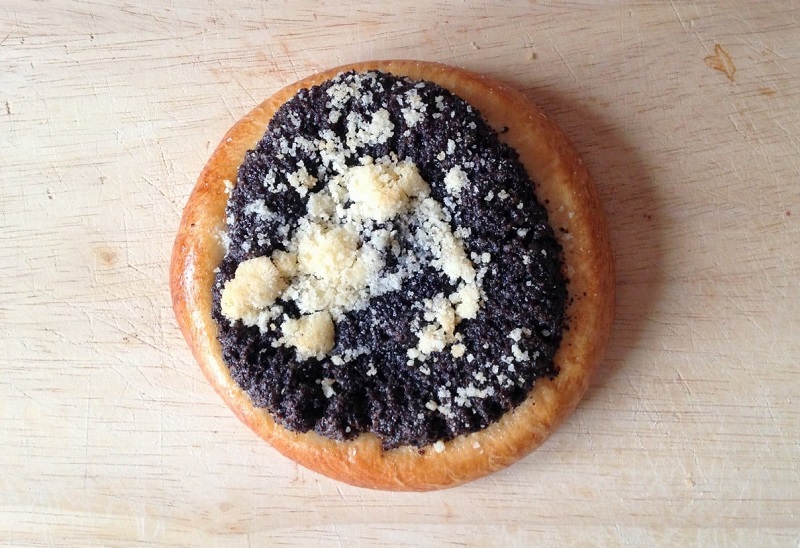
Although the poppy can be a controversial food especially for foreigners, its exceptional nutritional composition cannot be denied. Poppy seeds have a mildly nutty flavor and a sweet fragrance. The most significant is the extraordinary calcium content (1500-1840 mg in 100 g), which is 600x more than wheat flour, 12x more than milk and 16-20x more than walnut kernels.
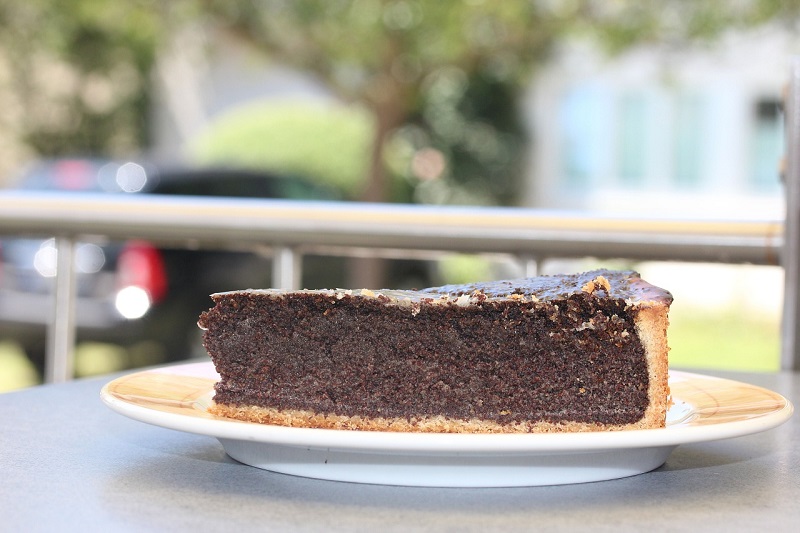
Poppy seed also stands out for its high potassium content, which is 2.5 times more than in a banana. It has twice as much magnesium as walnuts, and there is more zinc in poppy seeds than in pumpkin seeds. They are 75% essential fatty acids and are also rich in magnesium, calcium, and fiber. In other words – the Czech blue poppy is not a drug, but rather a superfood that grows in Czech fields and which its growers call “blue gold”.
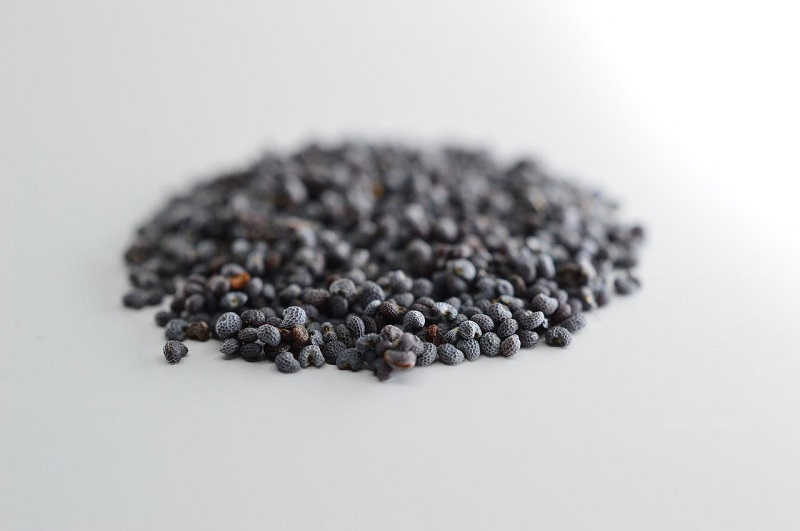
How Much Poppy Seeds Do Czechs Eat in a Year?
The Czech Statistical Office says that each person consumes between three and four hundred grams of poppy seeds per year. To be more exact, each Czech consumes an average of 380 grams during the year, i.e. roughly 1 gram per day.
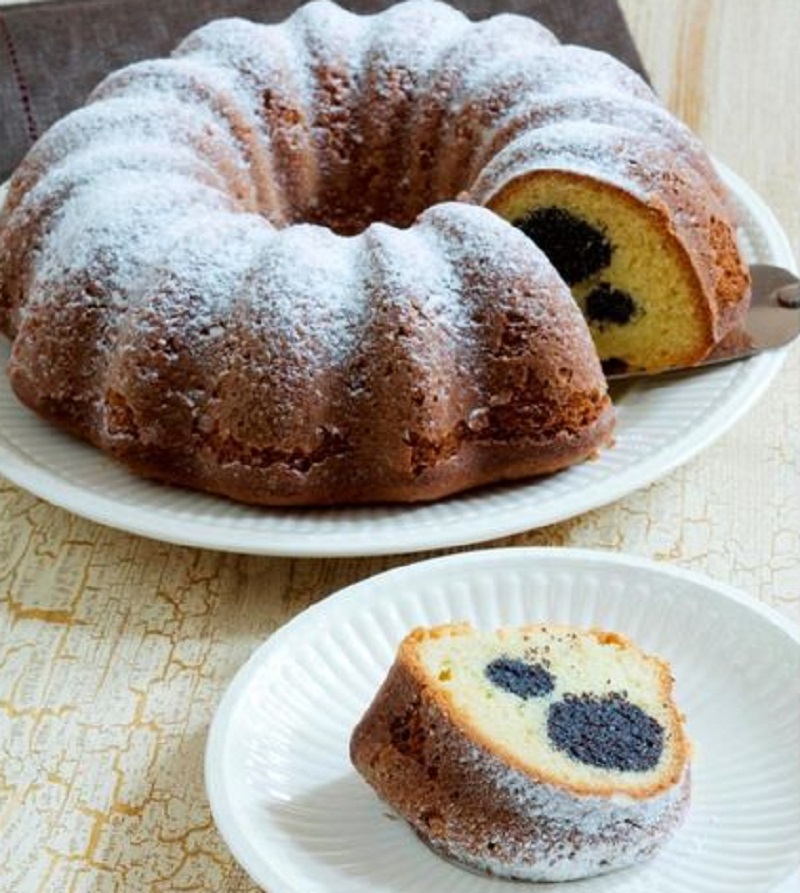
Traditionally, the largest number of poppy fields are in Central Bohemia, Vysočina, Hradec, Pardubice and Hana. About 840 poppy growers are registered in the Czech Republic, from small ones with a few acres to large ones that grow poppies on an area of several hundred hectares.
According to the data of the Czech Statistical Office, 40,255 hectares were sown in 2020 which is 12.5 percent more than 2019.
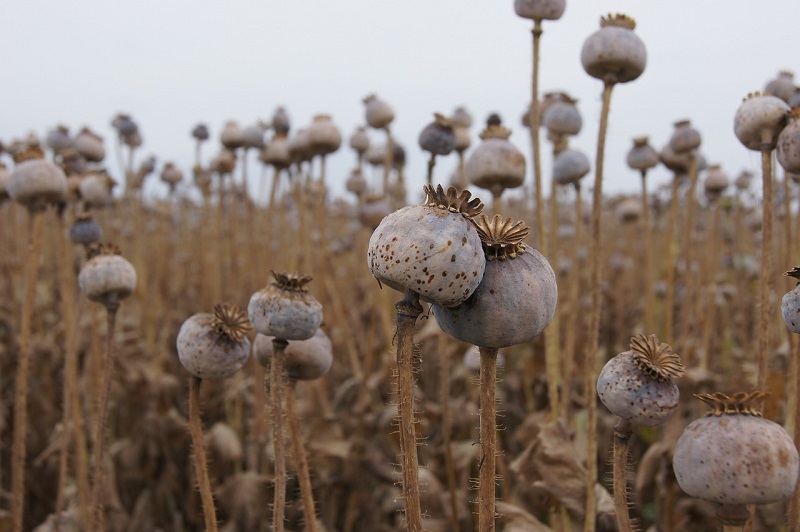
Which Poppy Seed is Better? Whole or Ground?
Freshly ground whole poppy seeds smell beautiful and taste perfect. Anyone who has ever tasted the difference between freshly ground versus the canned ground certainly owns a poppy seed grinder because fresh is 100% better.
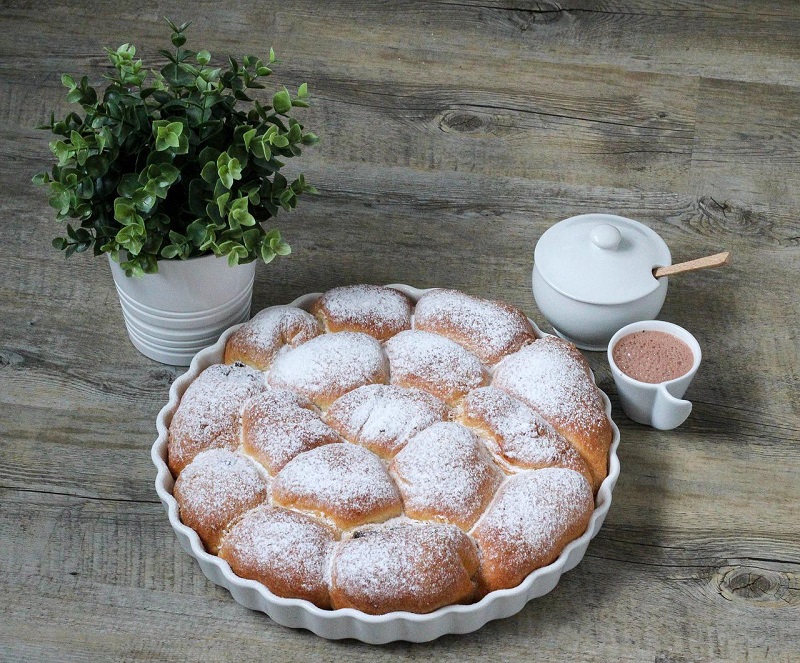
The whole grains of the poppy, which are crushed just before processing, smell beautifully and make the taste buds literally dance.
Whole poppy seeds last longer, retains their taste and aroma longer and legislation determines quality requirements for the entire or whole poppy seed.
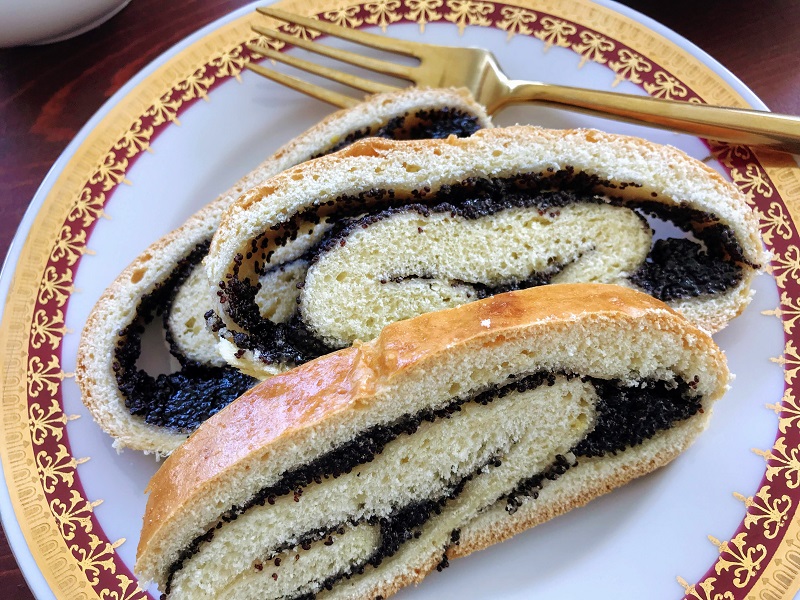
Ground poppy seeds, on the other hand, are readily available, and ready to use straight from the bag. Yes, they save a lot of time and work, but you can taste the lack of flavor by comparison. Ground poppy seeds also spoil faster, so they are not suitable for longer storage. Therefore, it is very important to check the expiration dates on canned seeds.
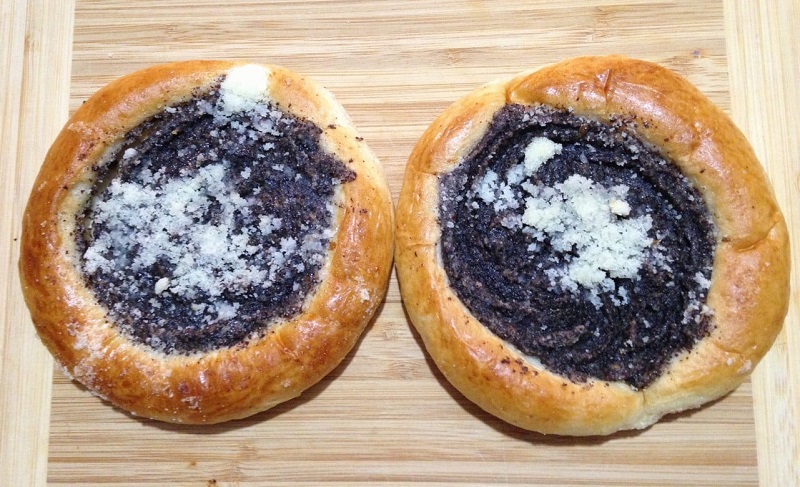
This is also the reason why manufacturers treat them with so-called thermostabilization – a process that uses hot steam. This not only slows down the spoilage of the poppy, but also reduces the content of undesirable substances (ie: morphine alkaloids).
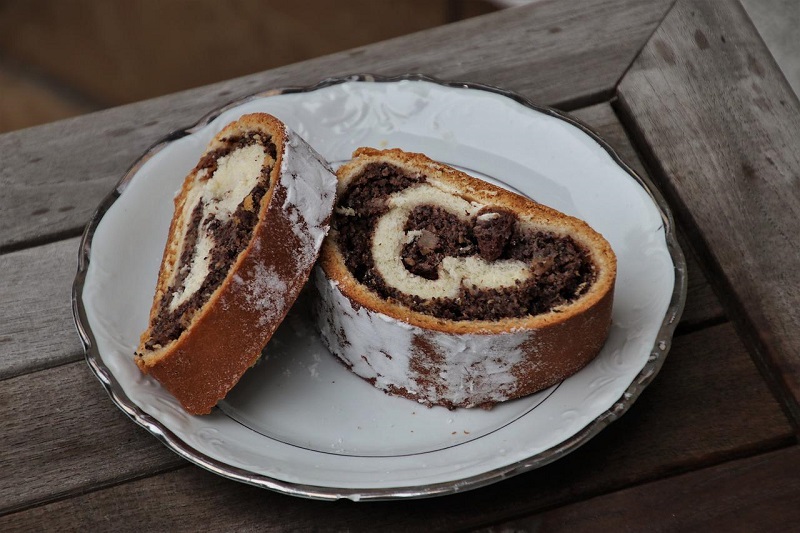
Ground poppy seeds spoil faster in domestic conditions, they are thermostabilized, which prevents them from going rancid, but also reduces the taste and aroma. Legislation does not specifically address the purity and quality of ground poppy seeds. And you do not have the opportunity to see the original raw material before grinding which means that possible impurities are not visible.
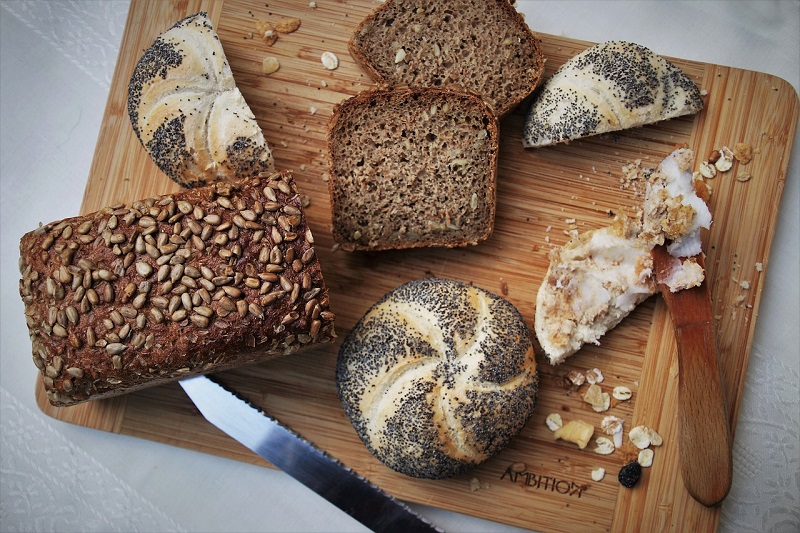
However, the price for this can be varying degrees of loss of taste and smell. Poppy seeds have a high oil content, and although the oil is relatively stable while the seed is intact, refrigeration will slow the oxidation process and prolong the life of the seed.
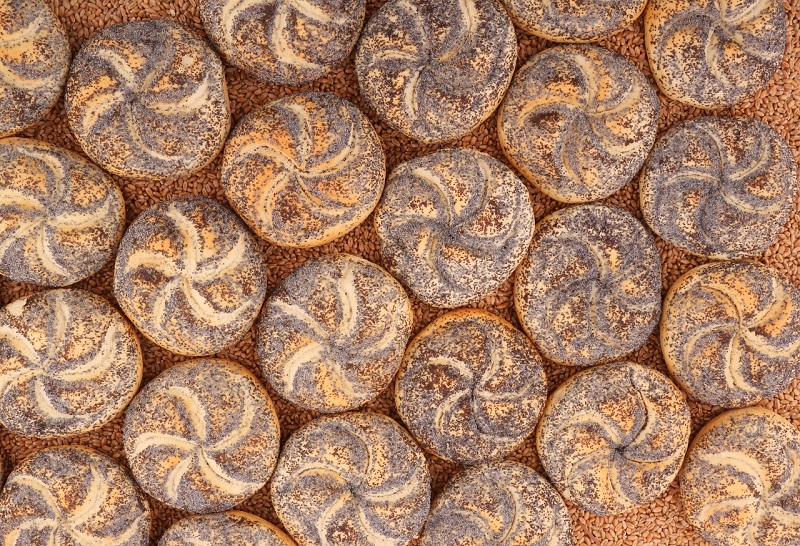
Aren’t Poppy Seeds Dangerous?
In addition to the food poppy, which are used in cooking, there is also the technical poppy. This poppy seed is used in pharmaceuticals. The purpose of its cultivation and use is not to please the taste buds, but to take advantage of the effects of the opium alkaloids it contains.
Opium alkaloids are compounds with hypnotic effects that the technical poppy naturally contains (there can be up to 80 of them, among the most famous are morphine and codeine), and which are used in medicine. However, it also makes the poppy a crop whose cultivation needs to be controlled because it can be misused to make drugs.
These opium alkaloids are contained within the juice of the poppy flowers, they do not occur in the seeds. However, the poppy may be contaminated when harvesting. Opium is actually produced by milking latex from the unripe fruits (which contain the seeds) rather than from the seeds themselves but all parts of the plant can contain or carry opium alkaloids, eg morphine and codeine. This means that eating foods (e.g., muffins or bagels) that contain poppy seeds can result in a false positive for opiates in a drug test. However the results provided will not be the same for someone who uses opiates.
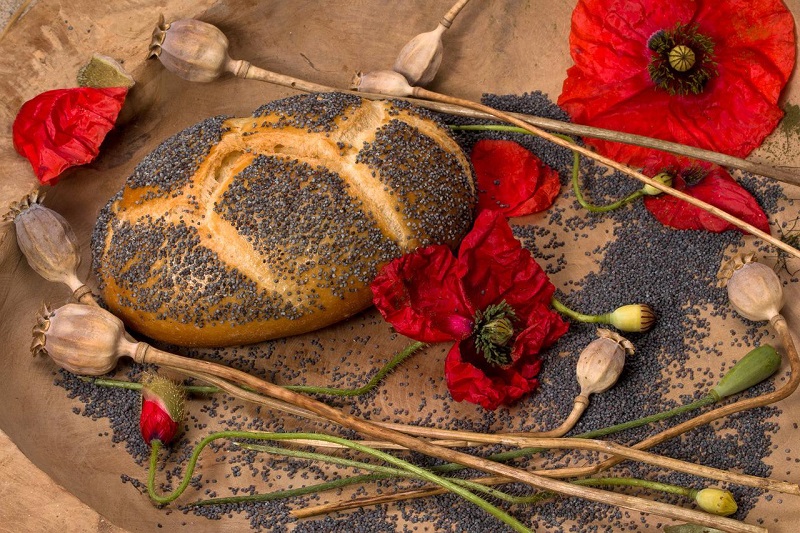
The maximum permissible amount of morphine in poppy seeds is regulated by a Czech decree and is also revised by the European Food Safety Authority (EFSA).
On the other hand, edible poppy do not contain these substances with pharmacological effects, so they are completely safe for culinary purposes.
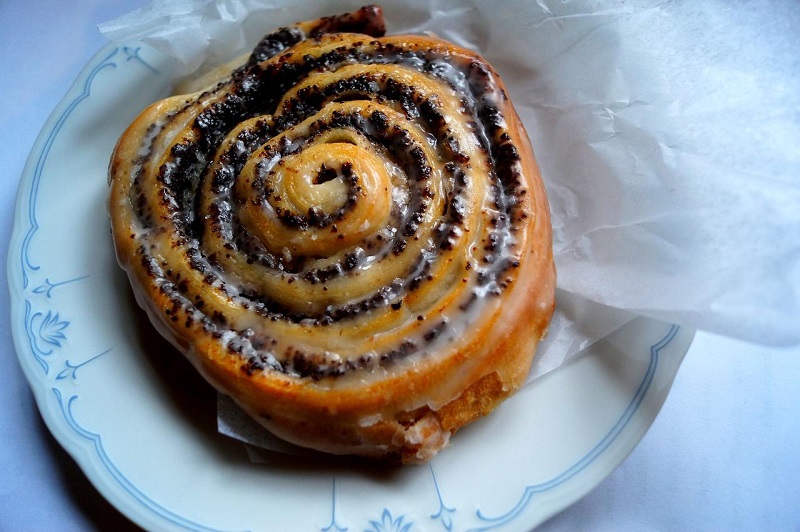
The Czech Blue Poppy Was Finally Recognized as a European Food
For five-and-a-half years, the Czech Blue Poppy Association submitted an application to the European Court. In the course of this long period, it was necessary to repeatedly prove to the European Commission that it is not really a pharmaceutical raw material, but a food commonly consumed in the Czech Republic. And that is precisely the main purpose of a trademark – to distinguish two types of commodities from each other, even if they have the same name.
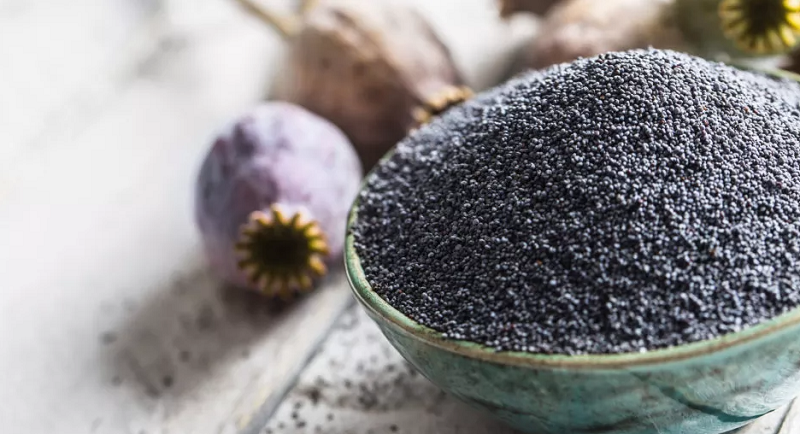
The poppy, which is grown mainly in Western Europe, is a technical poppy. It is purposefully used for pharmaceutical purposes and the seed must not be consumed. In contrast, the Czech blue poppy is of completely different quality. It is, by its very nature, a food that has its place not only in the Czech Republic and Slovakia, but also in Bavaria, Austria, Hungary and other states linked by Slavic history.
The Czech blue poppy is very unique. It has obtained the prestigious blue-yellow Protected Geographical Indication (PGI), which guarantees that the name Czech Blue Poppy cannot be used within the entire EU, unless it is really a poppy grown in our country.
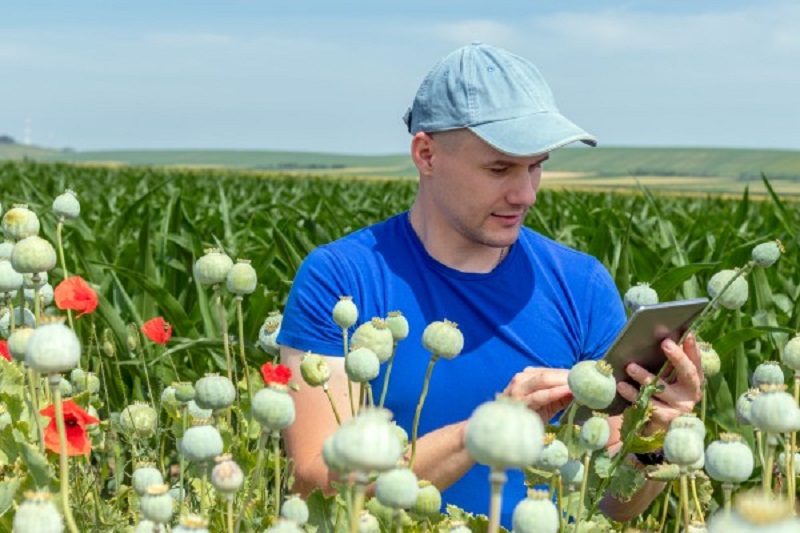
Agronomist or farmer with a tablet computer in the poppy field assessing the crop condition. Cocoons of ripening poppy heads. Papaver somniferum. Opium or bread seed poppy.
“Poppies are more important to us than Czech hops from the point of view of foreign trade. Abroad, there is great interest in the Czech blue poppy. Up to 85% of our harvest goes abroad, its value is higher than a billion crowns. Last year, most of them went to Russia, Austria, Poland, Slovakia and Germany. We export a non-negligible amount in the order of hundreds to thousands of tons to Ukraine, Romania, Hungary, Belarus and also to Holland, from where it is also exported to the USA and Canada. In short, the poppy is our blue gold. The granting of a European trade mark will help us all – the consumers – the most. But also for the Czech Republic on the world poppy market, because this brand carries a clearly defined quality,” -Vlastimil Mikšík.
Did you know that the Czech Republic is the largest grower and exporter of edible poppy in the world? They harvest approximately 26,000 tons of this crop annually.
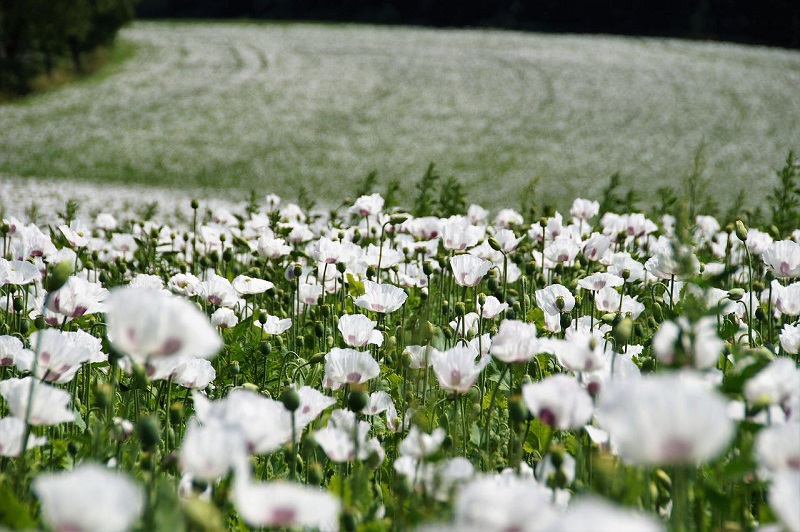
Meanwhile, in the United States, the FDA is Investigating Companies that Produce and Sell Poppy Seeds Due to Suspected Contamination.
Czech love poppy seeds so much and they are so much a part of the country, entire cities have taken on the poppy name.
There are also many Czech surnames that include poppy seeds: Mák, Makový, Makoš, Makovec, Makovička, Maksovský and Maksička.
Here Are Some Yummy Poppy Seed Recipes at Our Site
- Delicious Czech Sweet Buns – Buchty
- Czech Sweet Treats – Škubánky
- Pletenec or Czech Sweet Braid
- Czech Sweet Noodles
- The Rohlík – A Czech Bread for Anytime
Did You Know You Can Also Drink Poppy Milk?
Poppy milk is a source of 10 to 12 times more calcium than cow’s milk, and you can prepare it easily. You will need 100 grams of rinsed poppy seeds and 1 liter of water.
Grind the poppy seeds, cover with 1 liter of water and leave to stand for at least 4 hours (preferably overnight) at room temperature. You can stir occasionally. Then you blend, strain and drink. A superfood powerhouse of a nutmilk or cows milk alternative.
The famous hero of fairy tales, Český Honza leaves home to go out into the world with nothing other than a bundle of poppy seed buns. Poppy is part of Czech folk songs, songs, poems, nursery rhymes and fairy tales. Some of you may remember this old program…
Original and authentic Czech cuisine cannot do without it. This applies to the entire Slavic cuisine, but also to its culture. During the biggest and most traditional holidays, such as Christmas and Easter, most Slavs – Czechs, Poles, Ukrainians, Belarusians, Slovaks and others – cannot imagine the holiday table without a dish including poppy seeds.
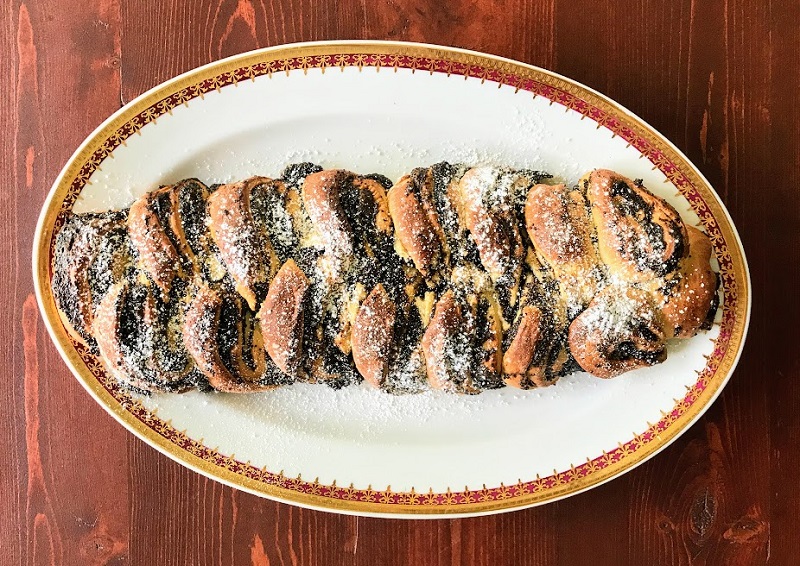
The Czech Republic, the largest producer of edible poppy seeds in the world, has had a special relationship with poppy dishes in its kitchen since ancient times – the famous plum dumplings are made with poppy seeds, sweet noodles with poppy seeds, škubánky or shusterky, rolls with poppy seeds, including homemade sweets, cakes, buns, and koláče.
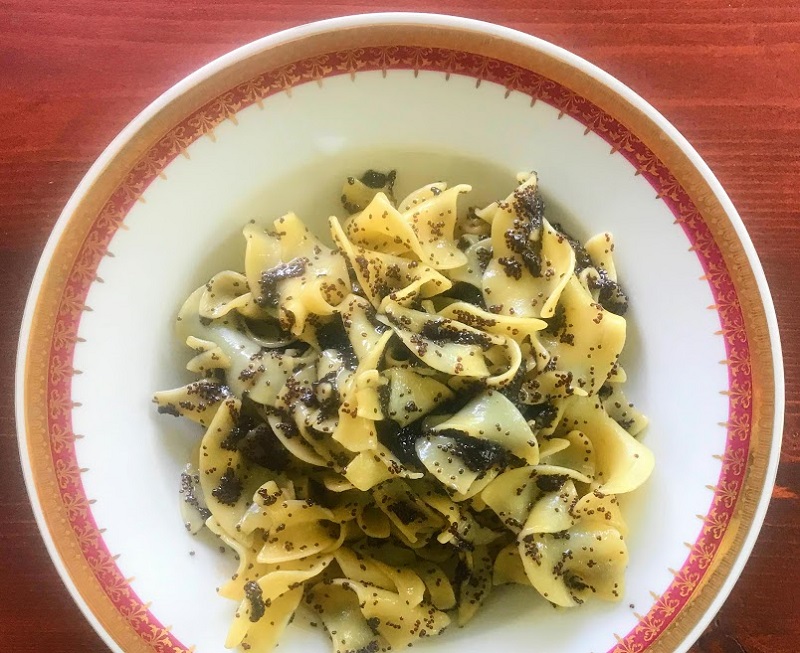
The poppy seed has also become a common sprinkle on white pastries and the filling of industrially prepared sweet pastries.
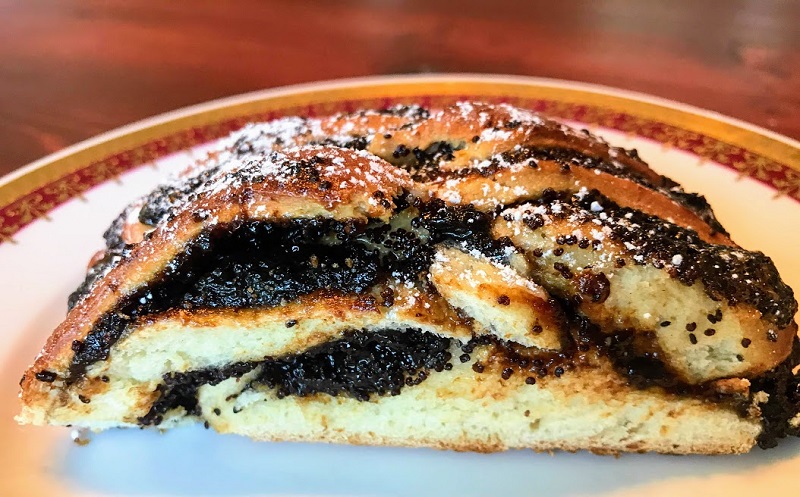
In closing, Czechs would not be Czechs without their love of poppy seeds—and mushrooms—but that is a posting for another time.
* * * * *
Thank you in advance for your support…
You could spend hours, days, weeks, and months finding some of this information. On this website, we curate the best of what we find for you and place it easily and conveniently into one place. Please take a moment today to recognize our efforts and make a donation towards the operational costs of this site – your support keeps the site alive and keeps us searching for the best of our heritage to bring to you.
Remember, we rely solely on your donations to keep the project going.
We appreciate you more than you know!
If you have not already subscribed to get TresBohemes.com delivered to your inbox, please use the form below now so you never miss another post.




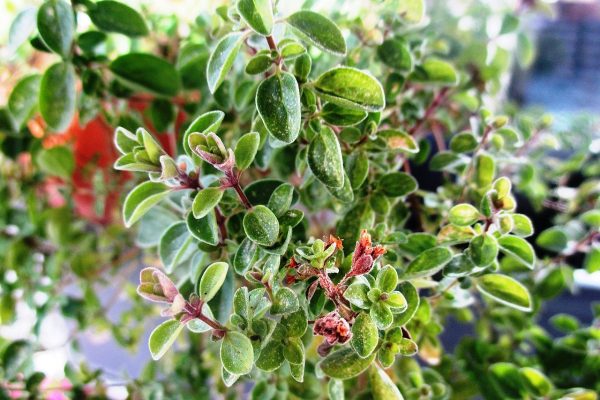
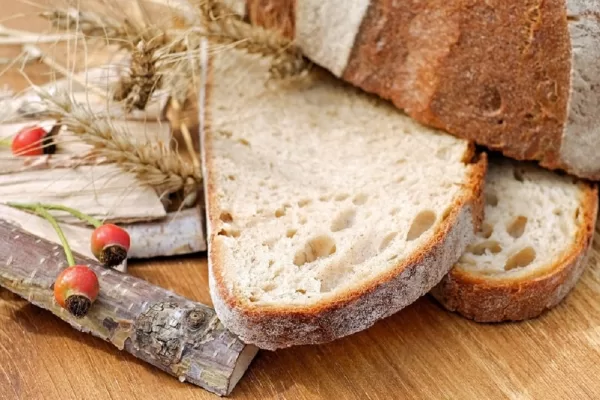
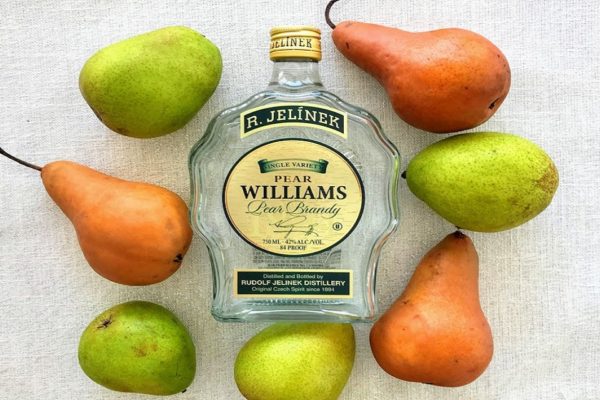















Very interesting article.